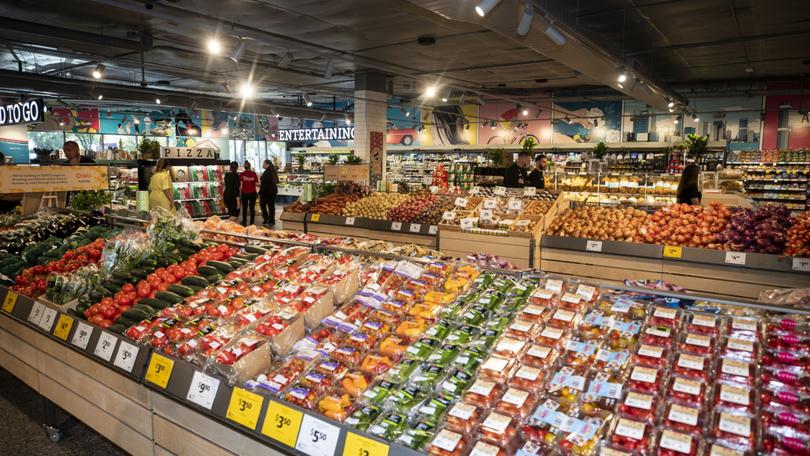No benefit to food waste, Coles executives tell SA Parliament grocery price inquiry
Coles executives have hit back at suggestions the supermarket giant encourages food waste and marked up some items as much as 300 per cent in a fiery Parliamentary inquiry.

Executives at retail giant Coles have pushed back on suggestions the supermarket giant encourages food waste, saying it has worked with farmers to encourage customers to buy food affected by bad weather.
They have also said staff numbers in supermarkets are increasing, and reaffirmed customers who object to or do not want to use self-serve check-outs can simply request a staffed check-out be opened.
“We’re not in the business of wasting food — there is no benefit to Coles commercially to waste products or add to the food waste of suppliers,” Coles’ government and industry relations manager Vittoria Bon on Tuesday said.
Sign up to The Nightly's newsletters.
Get the first look at the digital newspaper, curated daily stories and breaking headlines delivered to your inbox.
By continuing you agree to our Terms and Privacy Policy.Testifying to a Parliamentary inquiry into grocery prices in South Australia, Ms Bon said in almost all cases, Coles looked to its contracted fresh produce suppliers for more volume than had been agreed.
She emphasised that given high levels of competition in the grocery sector, suppliers could easily switch to rival supermarkets if Coles was not a supplier they wanted to deal with.
She said after recent floods in Queensland had resulted in smaller lettuces than expected, Coles worked with farmers to still sell the products, but in a “two for the price of one” packaged deal.
A similar result occurred after a recent NT mango season resulted in blemished fruit but still tasted as expected — Coles ran a campaign to encourage customers to buy them.
Coles donated unwanted or surplus food, including produce, to charities Secondbite and FoodBank, but also to farmers to use as feed for livestock, Ms Bon said. She added governments could consider tax incentives for farmers to be able to donate produce to charity, as often the high cost of freighting it meant farmers would not. Coles did do so, she said.
“We work a year in advance (with suppliers) to determine the volume of the product . . . but also product specifications,” Ms Bon said, adding this would include the eating quality, discolouration or rot and size.
“We do everything we can to make sure as little as possible goes to landfill.”
The top criterion was whether customers would buy the product, which was often determined from focus groups and surveys around customer priorities when choosing fresh produce. For example, she said, customers would not buy broccoli that was light yellow, with plenty of evidence customers wanted darker, greener broccoli.
Ms Bon also pushed back on suggestions from industry group AusVeg to the same inquiry that some products had a markup in stores of up to 300 per cent.
“We don’t do that at Coles,” she said. “That doesn’t exist.”
Ms Bon said there were some higher costs compared to purchase prices from farmers, and used watermelon as an example: they were not bought individually, so were transported on large semi-trailers to distribution centres, where they had to be unpacked and put into smaller groups, then transported nationally to more than 800 supermarkets, then unloaded and often cut, in line with customer preferences.
All of those steps, as well as the cost of trolleys, check-outs and fresh produce bags, added up but any mark-ups were “absolutely nowhere near 300 per cent”.
Ms Bon was quizzed about whether self-checkouts had reduced Coles’ in-store costs. She said they had not, and automated checkouts were a customer preference. More team members were working to collect and fulfil online and click-and-collect orders in distribution centres.
“If customers do prefer to go through a checkout with an operator, they just need to ask,” Ms Bon said.
“If you . . . don’t want automated — find a team member and ask them to process groceries for you.”
